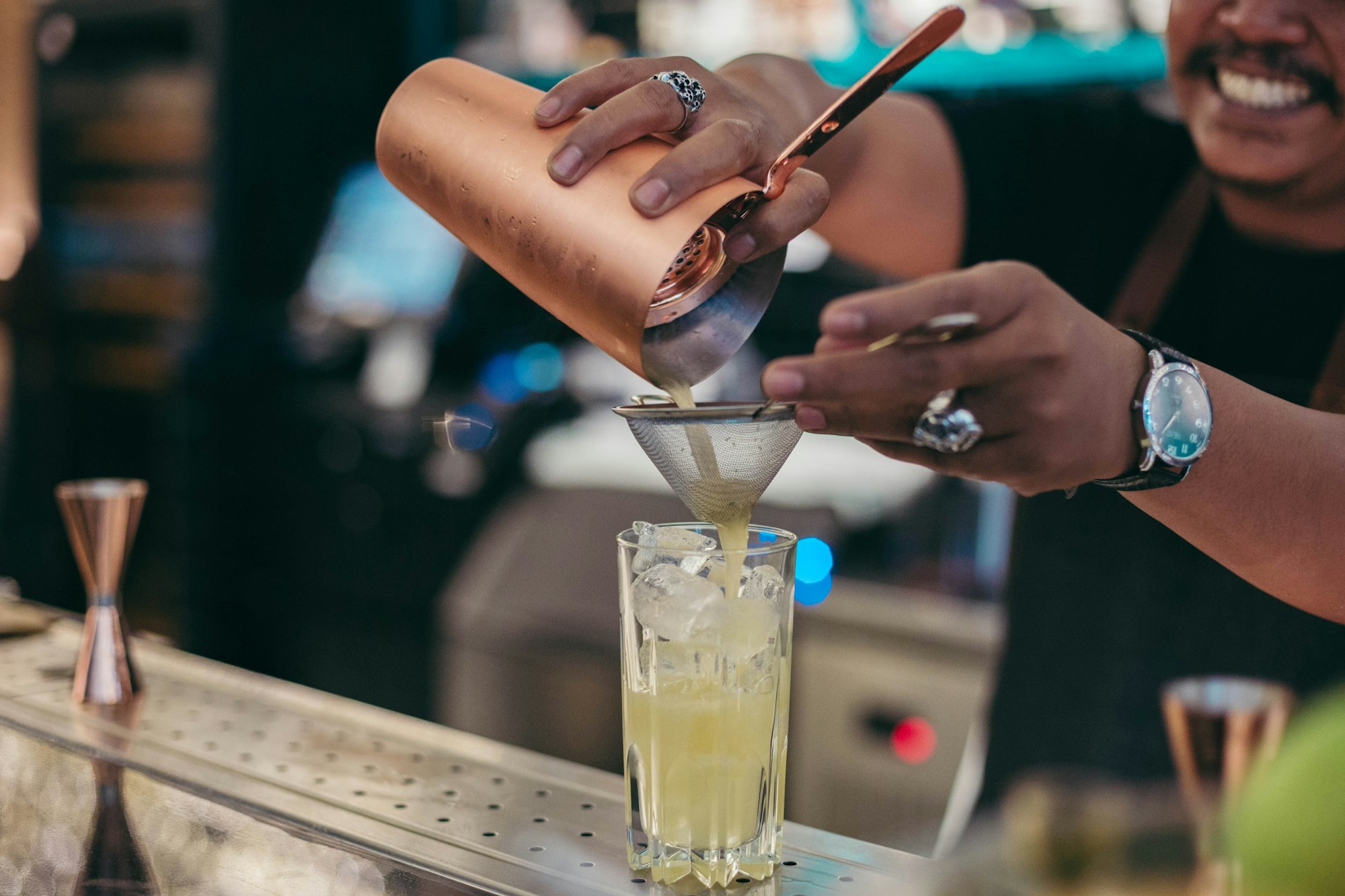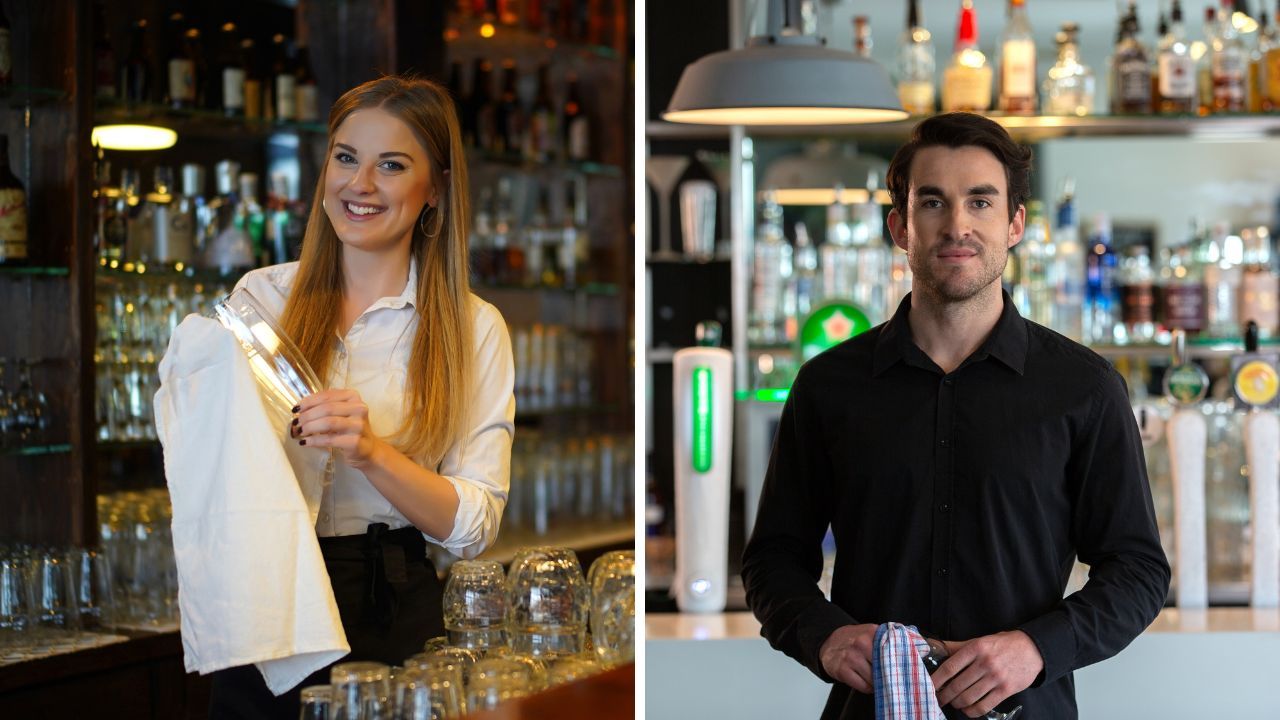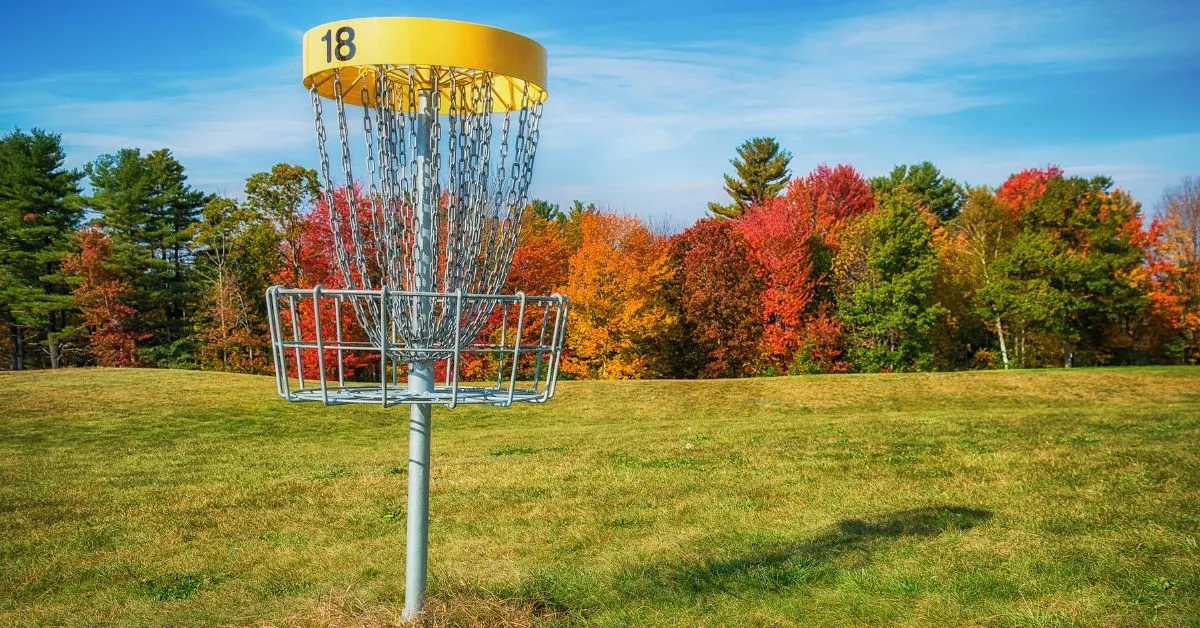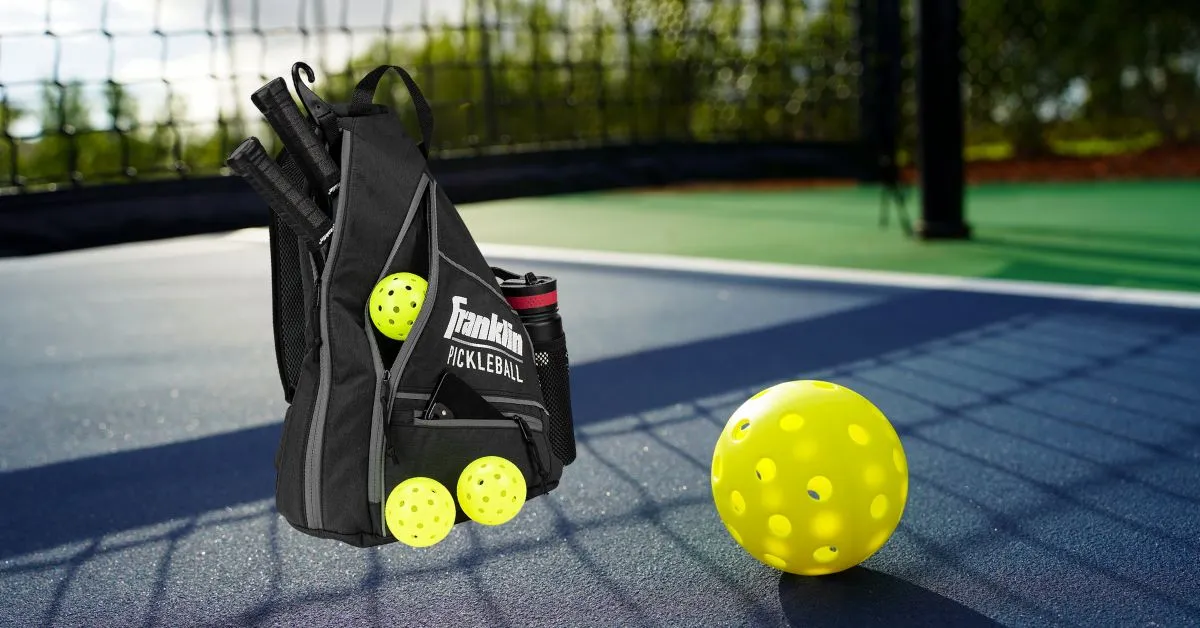Table of Contents
So, you've decided to dive into the exhilarating world of bartending. Congratulations! But where do you begin? Becoming a successful bartender requires more than just knowing how to shake a cocktail. In this comprehensive guide on how to become a bartender, we'll walk you through the essential steps, from exploring bartending schools to mastering customer service skills, and everything in between. Get ready to embark on a thrilling journey that will transform you into the bartender you've always dreamed of becoming.
How To Become A Bartender Summary
- Explore bartending schools and alternatives to gain knowledge and practice.
- Research local laws & requirements for serving alcohol, set personal goals & expectations.
- Prepare a professional resume/cover letter, dress professionally for the job interview, research potential employers & practice common questions.
With detailed and rigorous research, we provide our readers with the finest recommendations. Our recommendations are our opinions. Our cause is backed by reader support- for every click made through one of our affiliates links, a commission may be earned at no extra expense to you! As an Amazon Associate, Reviewsopedia may earn a commission from qualifying purchases. Thank you and enjoy!
Starting Your Bartending Journey

Taking the first steps toward a bartending career can feel overwhelming, but fear not! Begin by exploring bartending schools and alternatives, researching local laws and requirements, and setting personal goals and expectations. Thoroughly understanding the ins and outs of the industry, along with the legalities and your own aspirations, will lay a solid foundation for your future success as a bartender.
Many bartenders have launched their careers without attending bartending school, but it never hurts to have a formal education under your belt. Bartending schools provide a comprehensive education and can be a great way to kickstart your journey. However, don't forget to research alternatives such as online courses, self-teaching, and attending industry events to gain a well-rounded bartending experience.
Explore Bartending Schools and Alternatives
While bartending schools are not essential, they offer the benefit of learning the fundamentals of bartending in an organized manner, without the need to independently source this information. Attending a bartending school can help you master various pouring methods and learn how to create a perfect cocktail. However, keep in mind that the cost of bar-tending school varies, with basic online courses costing up to $200 and in-class sessions ranging up to $600.
If you're not quite ready to invest in a bartending school, there are plenty of alternative learning options available. These include attending industry events such as the Nightclub & Bar Show, self-teaching through online resources, and taking online courses. Whatever path you choose, remember that practice makes perfect – the more you learn and practice, the better equipped you'll be to become a successful bartender.
Research Local Laws and Requirements

Before pouring your first drink, it's crucial to be aware of the local laws and requirements for serving alcohol. Age and certification requirements vary by state, so make sure you're familiar with the regulations in your area. In the majority of states, the legal age for serving alcohol is 18 years old, but this can range from 18 to 21 depending on the state.
Most states do not require certification to become a bartender, but certain areas, like Washington, require an alcohol serving course and permit. To ensure you're fully prepared and compliant, consult your state's liquor control board for further details.
This will not only keep you on the right side of the law, but also show potential employers that you're serious about your bartending career.
Set Personal Goals and Expectations
Setting realistic goals and expectations for your bartending journey is essential. Start by mastering drink mixing techniques, acquiring cocktail knowledge, and cultivating customer service skills. Remember, becoming a great bartender is more than just knowing how to mix drinks – it's about creating memorable experiences for your guests and ensuring their safety.
To excel in customer service, learn how to monitor your environment for potential issues and diffuse situations quickly. Develop excellent communication skills, and be able to interact professionally with your customers. Familiarize yourself with the "angel shot" code, which can be used when a customer requires assistance.
By setting clear goals and expectations for yourself, you'll be well on your way to becoming an exceptional bartender.
Developing Essential Bartending Skills

Developing essential bartending skills requires practice and dedication. Successful bartending hinges on your ability to master drink mixing techniques, acquire an extensive knowledge of cocktails, and provide excellent customer service. These skills will not only make you stand out in a competitive job market, but also ensure a long and satisfying career behind the bar.
Remember that the initial competency required of a bartender is the ability to mix drinks and precisely measure liquid. From there, you'll need to build on your hard skills, such as creating cocktails, processing orders, and managing inventory. As you grow in your bartending career, you'll find that these skills become second nature and will serve as the foundation for your success.
Mastering Drink Mixing Techniques
Learning how to mix drinks and measure liquid accurately is the first step in becoming a competent bartender. This skill can be self-taught through online resources or by attending a bartending school. By mastering drink mixing techniques, you'll be able to create a variety of different drinks quickly and efficiently, ensuring your customers receive the highest quality beverages every time.
To practice your drink mixing techniques at home, consider investing in a cost-effective bar kit. This should include a cocktail shaker, tongs, whisk, spoon, and all the necessary tools for bartending. The more you practice, the more confident you'll become in your abilities, making you an invaluable asset to any bar or restaurant.
Acquiring Cocktail Knowledge
Bartenders need to know a wide range of cocktails to work in different bars and cater to diverse customer preferences. Acquiring cocktail knowledge is essential, as it enables you to suggest drinks to customers based on their taste profiles. In addition to knowing the classics, staying up-to-date with the latest cocktail trends and innovations will set you apart from your competition.
To begin building your cocktail knowledge, focus on memorizing popular drinks that customers commonly order. As you grow more comfortable with these staples, expand your repertoire by experimenting with new recipes and ingredients. Remember, a successful bartender is always learning and adapting to the ever-evolving world of mixology.
Cultivating Customer Service Skills
Bartending is a customer-facing profession, which means that excellent customer service skills are paramount. A great bartender must be able to strike the perfect balance between engaging with customers and knowing when to provide little interaction. This can be a delicate dance, but with practice and experience, you'll learn how to read your guests and adapt your approach accordingly.
Some essential customer service skills for bartenders include positivity, empathy, communication, attentiveness, and problem-solving. By cultivating these skills, you'll not only create memorable experiences for your guests, but also build lasting relationships that can lead to repeat business and word-of-mouth referrals.
Gaining Practical Experience

Gaining practical experience is key to becoming a successful bartender. While education and self-guided learning are important, there's no substitute for hands-on experience behind the bar. Immersing yourself in the industry and learning from seasoned professionals, you'll gain invaluable knowledge that can't be found in a textbook.
Starting from the bottom and working your way up is a tried and true method for gaining experience and advancing towards your desired bartending job. This approach not only allows you to learn the ropes from the ground up, but also demonstrates your commitment, determination, and passion for the industry.
Starting as a Barback or Server
Begin your bartending journey by starting as a barback or server. This will provide you with an opportunity to learn and understand the beverage trade from the other side of the bar. As a barback or server, you'll gain customer service experience, become familiar with the fundamentals of bartending, and create relationships with other bartenders and bar owners.
A barback is responsible for assisting the bartender by replenishing inventory, cleaning the bar area, and supporting the wait staff. A server, on the other hand, is responsible for taking orders and serving beverages and food to patrons. Both roles offer a unique perspective on the industry and will equip you with the skills and experience necessary to excel as a bartender.
Finding a Mentor
Finding a mentor in the bartending industry can be a game-changer. Having someone with experience and expertise to guide you through your journey can help you learn faster and make a good impression on potential employers. To find a mentor, start by establishing connections and cultivating relationships with knowledgeable bartenders and industry professionals.
Once you have identified potential mentors, reach out and express your interest in learning from them. Ask if they would be willing to mentor you and suggest meeting with them to discuss further.
Remember to make the most of your mentor's advice by asking questions, taking notes, and implementing the techniques they teach you.
Networking and Building Relationships
Networking and building relationships within the bartending community is essential for career advancement. By forging connections with colleagues, vendors, and regular patrons, you'll not only increase your chances of getting hired, but also stay informed about industry trends and developments.
To effectively network, make sure to develop your conversational abilities, use appropriate body language, and engage with others outside of work hours. Keep in mind that networking is about collaboration and connection, not just exchanging business cards. By fostering genuine relationships with those in the industry, you'll be well on your way to a successful bartending career.
Crafting a Standout Resume and Cover Letter

Crafting a standout resume and cover letter is essential to getting noticed by employers. Your resume should highlight your relevant skills and experience, while your cover letter should grab the reader's attention and showcase your enthusiasm for the bartending profession.
Remember that your resume and cover letter are often the first impression a potential employer has of you. Be sure to proofread them for any errors and ensure they accurately represent your skills, experience, and passion for the industry.
Highlighting Relevant Skills and Experience
When crafting your resume, be sure to highlight relevant skills and experience that demonstrate your qualifications for the bartending position. This may include certifications, customer service experience, knowledge of alcoholic beverages and cocktails, multitasking abilities, and cash handling skills.
Also, include a concise summary that succinctly summarizes your past experiences and industry-specific skills. Remember, your resume should tell a story of your professional journey and make it clear to potential employers why you're the ideal candidate for the job.
Writing an Engaging Cover Letter
Writing an engaging cover letter is just as important as crafting a standout resume. Begin with a brief introduction that conveys your enthusiasm for the position, followed by a summary of your skills and education. Be sure to provide concrete examples that support your statements and showcase your qualifications for the bartending role.
In your conclusion, thank the reader for their time and provide your contact information. This not only shows your appreciation, but also invites potential employers to get in touch with you to discuss your application further.
Navigating the Job Interview Process
Navigating the job interview process for a bartending position requires preparation and confidence. To put your best foot forward, take the time to read the job description thoroughly, research the bar, and dress in an appropriate manner. Remember, making a good first impression is crucial in the hiring process.
In addition to preparing for common interview questions, be ready to showcase your knowledge and enthusiasm for the bartending profession. With the right preparation and mindset, you'll be well on your way to landing your dream bartending job.
Researching Potential Employers

Before heading to your job interview, take the time to research potential employers. Visit their website to gain insight into their mission, projects, services, and employees. Additionally, examine their online presence, including reviews, customer feedback, and other relevant information, to better understand the company's operations.
By familiarizing yourself with the potential employer's background and values, you'll be better prepared to discuss how your skills and experience align with their needs. Plus, showing genuine interest and knowledge about the business can make a lasting impression on your interviewer.
Dressing for Success
Dressing appropriately for your bartending interview is essential for making a good first impression. For men, black dress pants and a well-fitting collared shirt are recommended, while women should consider wearing a blouse or a casual dress. Ensure that your clothing is clean and pressed, and avoid wearing anything overly flashy or revealing.
By dressing professionally and conservatively for your interview, you'll demonstrate your commitment to the position and your professionalism. This attention to detail can make all the difference in the hiring process and set you apart from other candidates.
Practicing Common Interview Questions
Preparing for common bartending interview questions is crucial for showcasing your knowledge and enthusiasm for the role. Some questions you may encounter include: Why did you become a bartender? Have you visited our establishment previously? Can you explain any training or experience you have in bartending? How would you define great customer service? Are you able to work evenings and weekends with flexibility?
When answering these questions, be honest and provide concrete examples to support your statements. Speak confidently and articulately, and demonstrate your enthusiasm for the role by asking relevant questions about the establishment and the position.
Summary
Aspiring to be a bar manager starts with mastering the art of bartending. To begin, familiarize yourself with the legal drinking age and regulations for serving alcoholic beverages in your area. A professional bartender must know how to serve alcohol responsibly and mix a few drinks with expertise. Landing your first bartending job requires honing your soft skills, such as communication and multitasking, to efficiently handle drink orders and create a pleasant experience for patrons. Becoming a good bartender takes time and practice, so immerse yourself in the world of mixology and service to excel in this dynamic career.
In conclusion, becoming a successful bartender requires dedication, practice, and a willingness to learn. From exploring bartending schools to mastering customer service skills, following this step-by-step guide will equip you with the tools and knowledge necessary to excel in the bartending industry. Remember, the journey is just as important as the destination – so embrace the process, learn from your experiences, and enjoy the exciting world of bartending!
Frequently Asked Questions
How do I become a bartender with no experience?
If you're looking to become a bartender with no experience, you should focus on getting a bartending license, finding a mentor, and building skills like mixology and customer service.
Be patient as you look for work, practice making drinks, and use barbacking and restaurant bartending jobs to gain the necessary experience.
Do bartenders make much money?
Based on the available data, bartenders make a good salary compared to the national average. The average annual salary with tips is approximately $60,787, far above the 2021 median income of $51,480.
With good tips, bartenders can make even more than this average yearly.
How do I get hired as a first time bartender?
With a strong resume, some bartending experience, and the confidence to make it happen, you can get your first job as a bartender.
Be sure to create an impressive resume, gain valuable bartending skills, and show up ready for an interview or trial shift!
With detailed and rigorous research, we provide our readers with the finest recommendations. Our recommendations are our opinions. Our cause is backed by reader support- for every click made through one of our affiliates links, a commission may be earned at no extra expense to you! As an Amazon Associate, Reviewsopedia may earn a commission from qualifying purchases. Thank you and enjoy!
Other Related Articles








